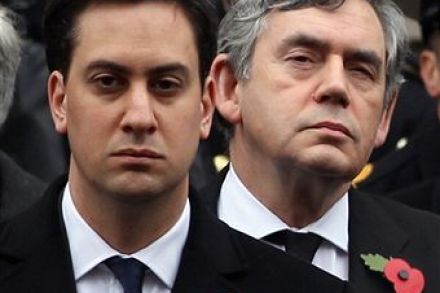Going south
The moral nadir of any state must surely have come when Mr Gerry Adams MP announces that he is its white knight. Yes, this IRA butcher and architect of countless bombings and killings is abandoning Northern Ireland politics, and even his empty seat in Westminster, to stand in Ireland’s general election next year. He actually thinks that he is entitled to berate the politicians of the Irish Republic for their conduct. And by God, he could well have a point. Just look at the latest nugget to emerge from the parliamentary sewer that is Leinster House — the equivalent of the Palace of Westminster. James McDaid, a retiring politician on
















